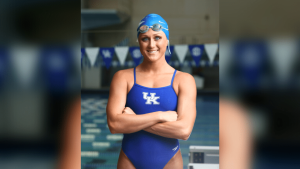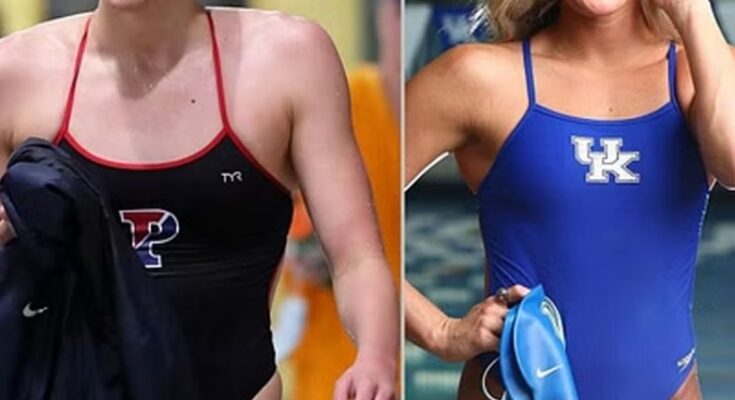Riley Gaines Wins $50 Million Lawsuit Against NCAA for Unfair Medal Distribution, “A Victory Against Wokeness”
The dispute stems from Gaines’ contention that the NCAA unfairly distributed medals in favor of Lia Thomas, a transgender swimmer who has been at the center of controversy regarding her participation in women’s swimming competitions. Gaines argued that the NCAA’s handling of the situation not only disregarded fairness and meritocracy but also undermined the integrity of competitive sports.
Gaines, a decorated swimmer in her own right, felt that her achievements wereovershadowed by the NCAA’s decision to prioritize inclusivity over athleticexcellence. The $50 million settlement serves as vindication for Gaines andreaffirms the principle that merit should be the primary criterion for success insports.In a statement following the settlement, Gaines expressed her relief and gratitudefor the resolution of the dispute. “This victory is about more than just monetarycompensation,” she remarked.”It’s a testament to the importance of upholdingfairness and integrity in sports, and I hope it serves as a wake-up call fororganizations like the NCAA to prioritize these values moving forward.”

The lawsuit and subsequent settlement have reignited debates about the role ofwokeness in sports and the balance between inclusivity and competitiveness.While many applaud Gaines for standing up against what they perceive as theundue influence of political correctness, others argue that her actions undermineefforts to create a more inclusive and equitable sporting environment.Supporters of Gaines argue that her victory represents a triumph of meritocracyover identity politics.They contend that athletes should be judged solely on theirperformance and achievements, rather than factors such as gender identity orpolitical ideology. By challenging the NCAA’s decision, Gaines has emerged as achampion for fairness and integrity in sports.

However, critics argue that Gaines’ lawsuit is an attempt to roll back progresstowards greater inclusivity in sports.They argue that initiatives such as allowingtransgender athletes to compete according to their gender identity are essentialsteps towards creating a more diverse and welcoming athletic community. Bychallenging these initiatives, Gaines and her supporters risk perpetuatingdiscrimination and exclusion in sports.The $50 million settlement serves as a reminder of the complex and oftencontentious nature of sports in modern society. While sports have the power tounite people from diverse backgrounds and promote values such as teamworkand perseverance, they also reflect the broader social and political tensions ofthe time.As the debate over wokeness in sports continues to unfold, it is essential toremember the importance of balance and nuance. While inclusivity and diversityare undoubtedly crucial goals, they must be pursued in a manner that does notcompromise the fundamental principles of fairness and meritocracy.
In the case of Riley Gaines, her victory in the lawsuit against the NCAA representsa significant moment in the ongoing dialogue about the future of sports. Bystanding up for what she believes in and challenging the status quo, Gaines hasnot only secured a substantial settlement but also sparked importantconversations about the values that should guide the world of athletics.



